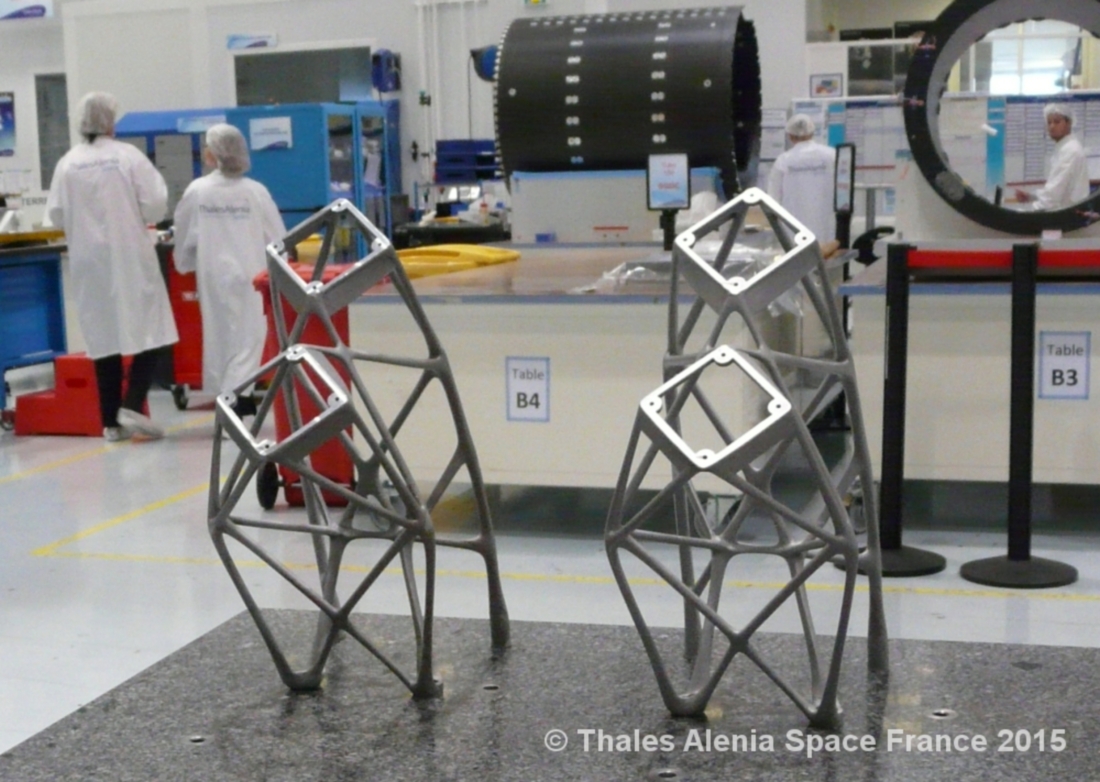Additive manufacturing and space: step up to the European challenge, "Make it Light!"
Thales Alenia Space is a partner in a European contest called "Make it Light", organized in conjunction with the French additive manufacturing company Poly-Shape and the software publisher Altair. Open until March 31, 2016, this contest addresses engineering, architecture and design students.
Make it Light: optimizing space
Weight is of course the sworn enemy of all satellite manufacturers. It costs about €15,000 to send a kilo into space, so making judicious use of the space available in satellites is essential. The aim of the "Make it Light" contest is to design and model an ultra-light structure for a new space telescope from Thales Alenia Space. Proposals have to meet the technical specifications defined by partners. The winning project will lead to the construction of a prototype, made using the powder bed additive manufacturing process – and it will be integrated in upcoming R&D projects at Thales Alenia Space.
For complete info on the contest and eligibility requirements, click here.
New technologies for the space industry

Robotics, cobotics, 3D printing… These and other new technologies are an integral part of Thales Alenia Space's industrial transformation strategy. Parts made using the additive manufacturing process, now part of the company's core production capabilities, have already been used on the TurkmenAlem satellite, now in orbit, and Arabsat 6B, slated for launch in November 2015. The Koreasat 5A and 7 telecom satellites will have the largest parts ever made by additive manufacturing in Europe for a space application. For further info, please read the press release.